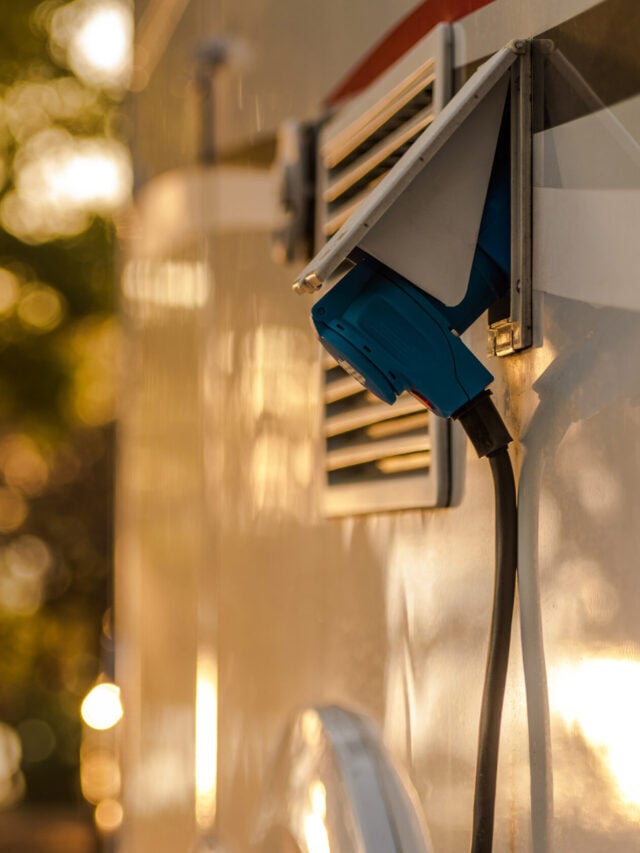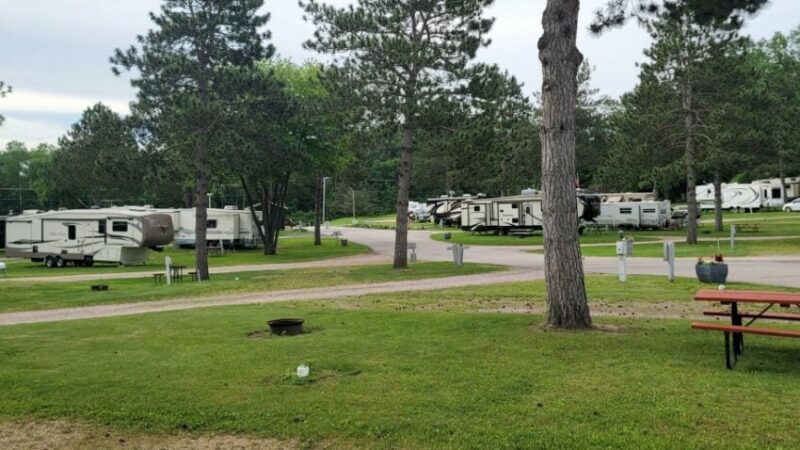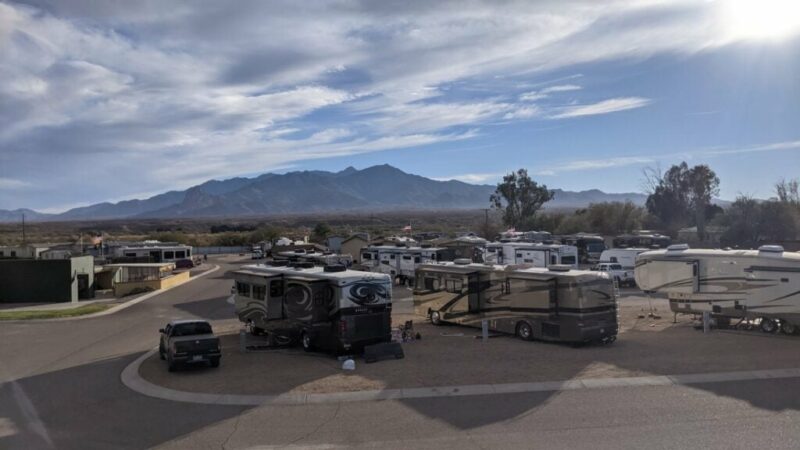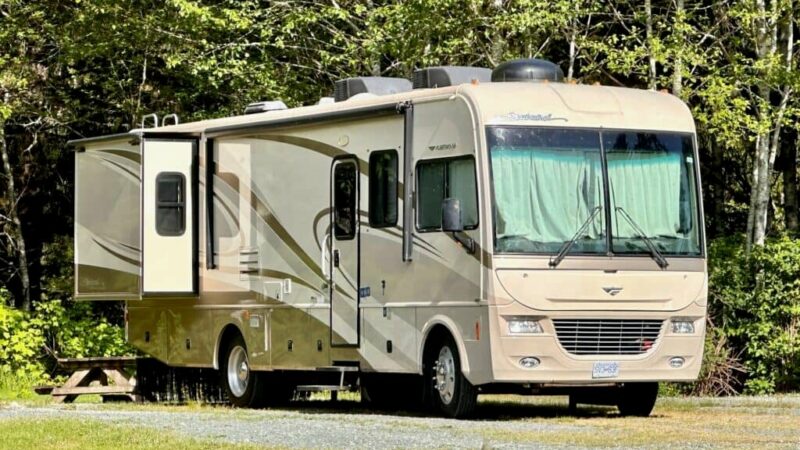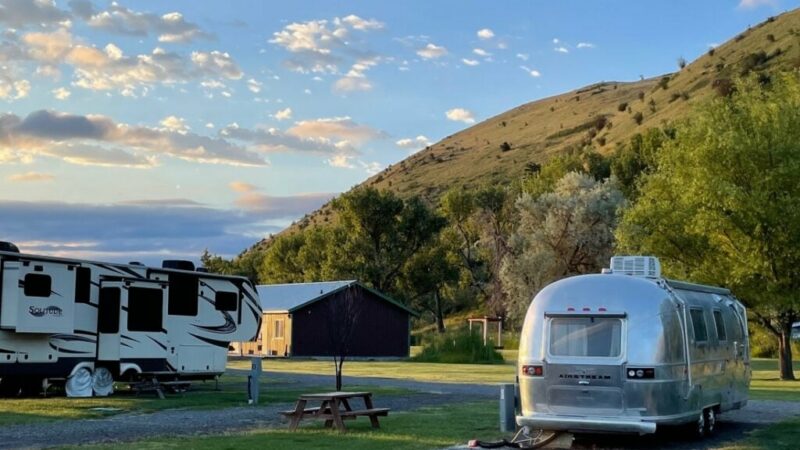10 Things You Should Know About Hooking Up An RV
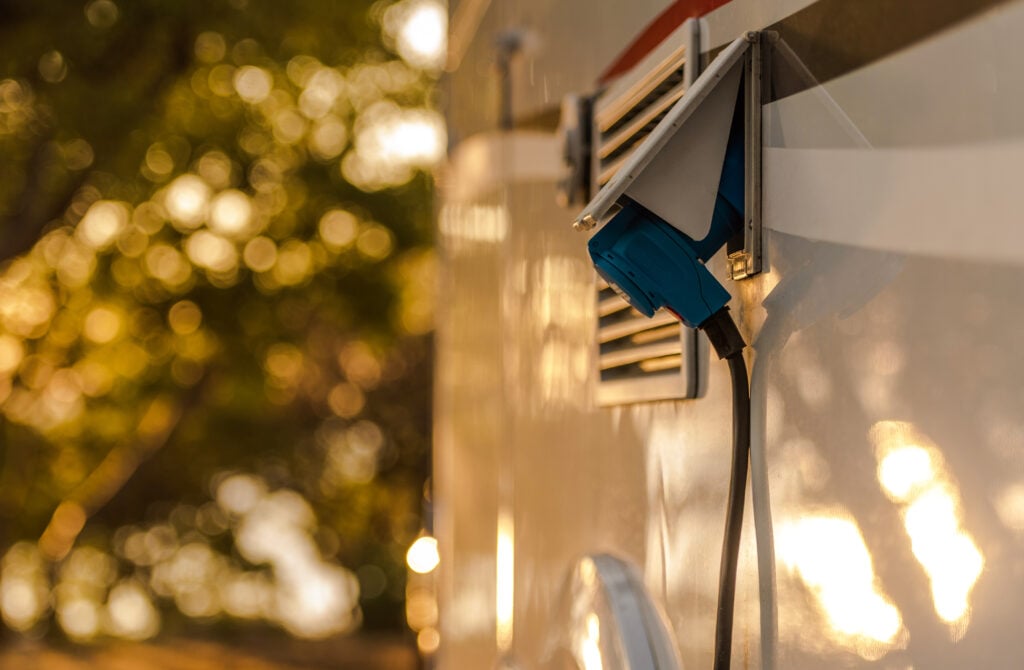
If you’re new to RVing, you will want to keep these tips in mind. Photo: Shutterstock
10 Tips On Hooking Up An RV To Campsite Utilities
When you’re just starting out RVing, hooking up an RV to utilities can be intimidating. The key is to be prepared and have a system.Here are ten tips to help you to feel more confident when connecting to RV campsite utilities.
1. RV hookups are on the driver’s side of your RV.
When you get to your campsite, you’ll want to try to align the left side of your RV with the hookups for power, city water, and sewer. This will make hooking up an RV a lot easier than it would be with all the connections on the wrong side.
2. Chock your wheels and get level before you do anything else.
We’ve found RV leveling chocks to be very helpful before hooking up an RV to campsite utilities. First, put your stabilizer jacks down, and use jack pads to distribute the heavy weight of the RV and prevent the jacks from sinking.
3. Hook into power before connecting your RV to other utilities.
That way, you can test RV campsite power connections to prevent possible damage by shoddy connections. And you can extend your slides without using battery power.
4. Campsite power pedestals are either 30 amp or 50 amp.
It’s a good idea to carry an RV dogbone power connector. This must-have RV accessory gives you the ability to hook up to electrical power, even when the provided hookup is the wrong one.
However, if you are hooking up a 50-amp RV to 30-amp service, you’ll only be able to get 30 amps of power, which won’t run both of your air conditioners at once.
5. All campsite power pedestals are not created equal.
Some campsite wiring is sketchy. Power surges and bad wiring can fry the electrical components in your RV.
To protect your RV’s electrical system, it’s always a good idea to use an electrical surge protector. This is one of 10 must-have RV electrical supplies every camper needs on board.
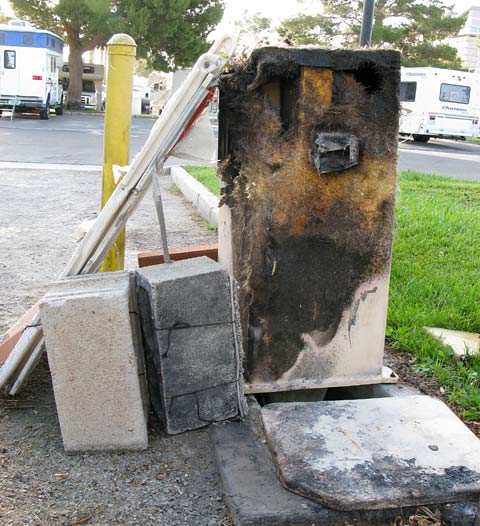
This RV power pedestal caught fire.
6. Next, hook up your city water supply.
The water supply at all campgrounds is known as city water, even when you are many miles from a city. Most of the time, campsite water pressure is too strong for our lightweight RV water systems.
To avoid damaging your RV’s water system, use a water pressure regulator between the faucet and drinking water hose before hooking up an RV to water systems.
7. Use a lightweight, expanding drinking water hose for drinking water.
This will help minimize the storage room taken up for hose storage. The drinking water hose should only be used to supply drinking water to the RV.
You should never use this hose for black tank flushing. You’ll want to get an orange hose for flushing the black tank.
8. Use an inline RV water filter.
This keeps particulate out of your water tank and water system while improving the taste of your water. An RV water filter saves wear and tear on your water system while it purifies your water.
9. Hook up your sewage connection.
For this, you’ll need a 10-foot RV sewer hose with a clear elbow that you can attach to it. If you want to ensure your wastewater flows smoothly, you’ll need an RV sewer hose support. An RV sewer hose support holds the hose at an angle so wastewater flows downward into the wastewater intake pipe.
10. Don’t leave your holding tank valves open while you camp.
Only open your black tank or gray tank valves when you are ready to dump at the end of your stay. This is in part because holding tanks need to have plenty of liquid in them to function properly.
Leaving the black tank valve open while you are hooked up causes all the water to drain out of the black tank. The black tank then dries out and smells too.
You’ll have all kinds of sewage-related problems that you really don’t want to deal with. Trust us on this. Not only that, but leaving the tank valves open while you camp can cause offensive sewage gases to permeate the RV and your neighbor’s campsite.
Get tips from other RVers
Hooking up an RV to campsite utilities is really simple. With a little practice, enjoying full RV hookups is a piece of cake. The more you camp, the easier it gets.
One of the best parts about RVing is engaging with the community of traveling enthusiasts. iRV2 forums allow folks to chat with other RVers online, and get other perspectives on everything RVing, including products, destinations, RV mods, and more.
Related articles:
The post 10 Things You Should Know About Hooking Up An RV appeared first on RV LIFE.

